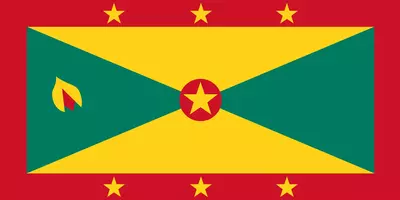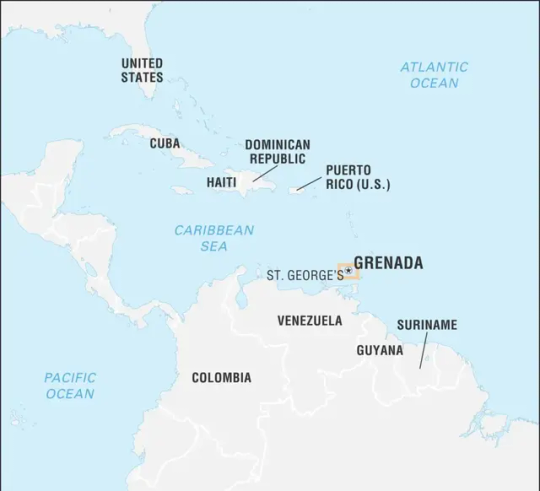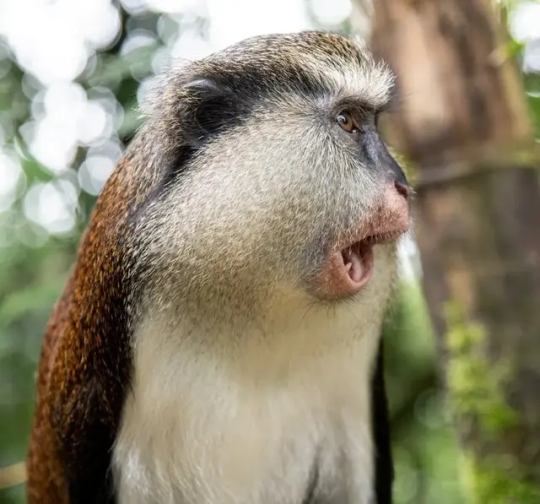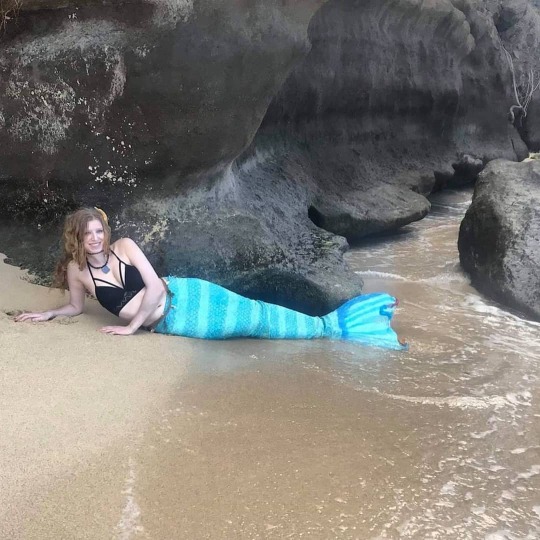#grenadatravel
Text
Grenada

Grenada, the spice island of the Caribbean, is a beautiful country with a rich culture and history. The country is located in the southeastern Caribbean Sea and consists of the island of Grenada and six other smaller islands.
The country has a population of approximately 111,454, and the official language is English. The capital city, St. George's, is a bustling port town with a picturesque harbor and a vibrant economy.
Grenada is known for its lush green forests, beautiful beaches, and vibrant culture. The country is famous for producing nutmeg, cinnamon, and other spices, which has earned it the nickname of the Spice Island.
The country's economy is primarily based on tourism, agriculture, and light manufacturing. Grenada's pristine beaches, crystal clear waters, and vibrant underwater world make it a sought-after destination for tourists. The country's rich history and culture also attract visitors from all around the globe.
Grenada has a tropical climate with consistent temperatures throughout the year. The country experiences rainfall between June and December, making it a perfect time to witness the flora and fauna in all its lush green glory.
Grenada's political system is a parliamentary democracy with a constitutional monarchy. The head of state is Queen Elizabeth II, who is represented in Grenada by a Governor-General. The country has a two-chamber parliament, consisting of the Senate and the House of Representatives.
Grenada is a picturesque and charming country with a rich culture, thriving economy, and warm hospitality. Its natural beauty, vibrant culture, and history make it a must-see destination for travelers from around the world.

Etymology
Grenada is a Caribbean country that is a popular tourist destination due to its natural beauty, warm hospitality, and rich cultural heritage. Its name is believed to have been derived from the ancient town of Granada in southern Spain.
When the first Spanish explorers arrived in the region in the late 15th century, they were reminded of their own hometowns, given the lush greenery and rugged terrain. The town of Granada in Andalusia, Spain, was a Moorish stronghold that was also known for its beauty and stunning landscapes. The name 'Grenada' was hence chosen as the name for the Caribbean island.
The origin of the name 'Granada' in Spain, however, is still a subject of debate. Some scholars believe that it may have been derived from the Arabic word 'qarnata,' which means 'hill of strangers,' because it was a refuge for Berber tribes that had migrated from North Africa. Others theorize that the name may have come from the Latin word for pomegranate, 'pomum granatum,' alluding to the fruit's reddish skin and juicy seeds.
Regardless of the exact origin of the name, Grenada embodies all the elements that its name represents - rugged peaks, lush valleys, exotic flora, and breathtaking beauty. It is no wonder that the island nation's name has become synonymous with paradise, attracting visitors from all over the world.
History
Grenada's history dates back to 200 B.C., with evidence of Amerindian settlements on the island. The Caribs, who were the last to inhabit the island, called it “Camahogne,” meaning “Island of Spice,” due to the abundance of nutmeg, cloves, ginger, and other spices.
Christopher Columbus first sighted Grenada in 1498 and named it Concepción. Over the next two centuries, the island was alternately controlled by the French and British. In 1783, Britain officially took control of Grenada under the Treaty of Versailles.
The British introduced the African slave trade to the island, leading to the exploitation of enslaved individuals who worked in Grenada's sugarcane fields. The abolition of slavery in 1834 reduced demand for labour, prompting a shift towards cocoa and nutmeg production.
Grenada became independent in 1974, with Sir Eric Gairy as its first Prime Minister. However, in 1979, the New Jewel Movement (NJM), a Marxist party led by Maurice Bishop, overthrew Gairy's government in a coup. Bishop became Prime Minister and led a socialist regime until 1983, when a power struggle between him and members of his government led to his overthrow and execution.
In the same year, the U.S and Caribbean nations, under the banner of Operation Urgent Fury, invaded Grenada to restore order, resulting in the establishment of a new government. New elections were held in 1984, and the New National Party (NNP) emerged victorious, with Herbert Blaize becoming Prime Minister.
Sir Nicholas Brathwaite succeeded Blaize as Prime Minister in 1989, but the NRP lost power to the National Democratic Congress (NDC) led by Ben Jones in 1990. However, the NDC government faced severe economic decline, leading to the return of the NNP in the 1995 general elections. Keith Mitchell succeeded Brathwaite as Prime Minister, a position he has held intermittently since.
In 2004, Hurricane Ivan devastated Grenada, causing significant damage to infrastructure and agriculture. The island has since seen a steady recovery with support from international donors.
Today, Grenada remains a constitutional monarchy within the British Commonwealth with a Prime Minister as its head of government.
Geology
Geology is an integral aspect of Grenada's natural environment. Grenada is a volcanic island with a diverse geology that includes rocks, lava flows, and volcanic sediments. The island also features a range of geological structures, such as folded and faulted terranes, and a variety of mineral deposits.
Grenada's geology can be traced back millions of years. The island was formed during the Late Oligocene period when it emerged from the sea due to tectonic plate movements. The island's geology is primarily composed of volcanic masses that are the result of a series of volcanic eruptions. The volcanic rocks are mostly basaltic, andesitic, and dacitic in composition.
The island also features several types of sedimentary rocks that were formed by the accumulation of volcanic ash, mud, and sand. This includes the region's highly fertile tuff deposits, which are often used for agricultural purposes.
One of the most notable geological features in Grenada is its dormant volcano, Grand Etang. Located in the center of the island, the volcano is approximately 1,740 feet above sea level. The crater of Grand Etang contains a lake, which is of great hydrological importance to the island.
Grenada's geology also affects the island's natural resources. The presence of mineral deposits, such as bauxite, gold, and manganese, has led to mining activities in the past. However, conservation efforts have been put in place to safeguard these resources and protect the environment.
Grenada's geological features and composition bring about diverse terrain that is both visually stunning and important to the island's ecology. As such, efforts must be made to preserve and protect it.
Geography
Grenada is a Caribbean country located at the southern end of the Grenadines island chain. The country comprises the main island of Grenada and six smaller islands, Carriacou, Petite Martinique, Caille Island, Diamond Island, Large Island, and Ronde Island.
Grenada has a total land area of 344 square kilometers and stretches 34 kilometers from its northernmost point to its southernmost point. The country's topography is characterized by volcanic mountains, with Mount Saint Catherine being the highest peak at 840 meters.
The island is largely covered by rainforest, and its lush greenery is a testament to the fertile soil. Grenada's coast is dotted with stunning beaches, coral reefs, and beautiful offshore islands. The country's coastline is 121 kilometers long, with plenty of bays, headlands, and sheltered harbors.
One of the unique features of Grenada is its crater lake, Grand Etang. Located in the Granada National Park, this lake is surrounded by a breathtaking rainforest and is home to many species of tropical plants, birds, and wildlife.
The island is also home to many other water features, such as rivers, waterfalls, and hot springs. The Annandale Waterfall is one of the most popular tourist attractions in Grenada and is located in a lush tropical forest setting.
The island of Grenada is located in the hurricane belt, making it more prone to natural disasters such as hurricanes and tropical storms. As a result, the country has developed resilience and emergency management plans to manage these risks.
In terms of its physical characteristics, Grenada's topography and natural features make it a popular tourist destination. Its stunning beaches, tropical forests, and beautiful offshore islands attract many visitors each year. It's also a popular destination for adventure-seeking tourists due to its many water features and mountainous topography. Grenada's diverse range of natural wonders continues to capture the hearts of tourists and locals alike.
Ecology
Grenada is an ecological paradise, with an abundance of natural resources and diverse flora and fauna. Its environment is so pristine that the country has been dubbed the "Island of Spice" due to its abundant production of nutmeg, cinnamon, and other spices.
The island is home to a vast array of ecosystems, including rainforests, mangroves, coral reefs, and savannas. Its coastline also boasts a remarkable variety of marine life, including whales, dolphins, sea turtles, and colorful fish.
The natural resources of Grenada have played a significant role in the country's economy and its inhabitants' livelihood. Nutmegs and other spices, together with bananas, cocoa, and other tropical fruits, account for a significant portion of the country's exports. The island's volcanic soil and tropical climate are conducive to the growth of such crops, making Grenada a thriving agribusiness hub.
In recent years, Grenada's government has taken significant steps to preserve and protect the island's natural resources. One such initiative is the country's National Parks and Wildlife Sanctuaries, which cover approximately 20% of Grenada's land area.
These protected areas encompass a diverse range of ecosystems, including forests, wetlands, mangroves, and coral reefs. They also offer a haven for various species of wildlife, including the Grenada dove, the national bird of the island, which is endemic to Grenada.
Beyond the parks and wildlife sanctuaries, Grenada also has several attractions that allow visitors to experience its natural beauty firsthand. For example, Grand Etang National Park, located in the island's central mountainous region, is a popular destination for hikers and nature enthusiasts.
The park, which covers approximately 2,000 acres, is home to the Grand Etang Lake, which is a crater lake formed in the aftermath of a volcanic eruption. Visitors can also spot several species of wildlife, including Mona monkeys and parrots, while hiking through the rainforest.
In addition to its natural resources, Grenada is also actively promoting sustainable tourism. Ecotourism, in particular, is becoming increasingly popular, thanks to the island's diverse ecosystems and natural attractions. Several eco-friendly resorts and lodges have sprouted up in recent years, catering to tourists who are looking for a more environmentally conscious travel experience.
Grenada's commitment to preserving its natural resources and promoting sustainable tourism makes the island a compelling destination for nature lovers and eco-tourists alike.
Biodiversity
Grenada, a Caribbean country, has a rich and diverse biodiversity. The country's location, climate, and terrain provide a varied habitat for numerous flora and fauna species. From rainforests to coral reefs, Grenada boasts 1,115 species of plants, 150 species of birds, 21 species of reptiles, and 12 species of mammals, along with a variety of other creatures.
The lush rainforests of Grenada are home to a broad range of plant life, including mahogany, teak, and cedar trees. The trees are used for various purposes, such as construction, furniture making, and medicinal purposes. The country is also known for its nutmeg production, which is a vital part of its economy. Nutmeg trees are found throughout the island, and Grenada produces about 20% of the world's supply. Other spices such as cinnamon, ginger, and vanilla are also grown in Grenada.
Grenada also has a wide variety of animal species. The National Bird of Grenada is the Grenada dove, which is a beautiful and peaceful bird known for its bright colors and sweet call. The country also has an abundance of marine life, including sea turtles, dolphins, and coral reefs that provide a habitat for various fish species. The Levera National Park is an excellent place to observe wildlife, with many hiking trails and lookout points where visitors can see a wide range of animals, birds, and insects.
Grenada's rivers, lakes, and ponds are home to several species of fish that are also an essential part of the country's cuisine. The country also has an active fishing industry that provides fresh seafood to many restaurants and markets.
Grenada has several protected areas where rare and endangered species live and thrive. The Grand Etang National Park is an excellent example, where visitors can see various wildlife, such as the Mona Monkey and the Lesser Antillean Iguana, living in their natural habitats. The park also has several hiking trails and waterfalls that visitors can explore while enjoying the beautiful scenery.
Grenada has a rich and diverse biodiversity of flora and fauna species that make it a unique and beautiful country. The government of Grenada recognizes the importance of protecting and preserving the country's natural resources and has implemented various programs to promote environmental conservation. Visitors to Grenada can enjoy an exciting experience by exploring the country's wildlife and natural habitats.

Mona Monkey
Climate
Grenada, an island nation in the Caribbean, has a tropical climate with a generally constant temperature throughout the year. The average temperature in Grenada is around 27 degrees Celsius, making it a perfect holiday destination for those seeking warmth and sunshine. Nonetheless, Grenada's climate is influenced by various weather systems, which can bring sudden changes in temperatures and conditions.
One such weather system is the trade winds, which provide a cooling effect on the island. The north-east trade winds blow throughout the year, making Grenada's weather fairly stable. During April to October, the island experiences occasional showers and thunderstorms as a result of the Intertropical Convergence Zone (ITCZ). While the rainy season lasts from June until December, with the highest precipitation levels in September and October.
Grenada's climate has a significant impact on the country's ecosystems and agriculture. The warm, moist climate favors a diverse range of plants and wildlife thriving in the region, including rainforest, mangrove forests, and coral reefs. The island's tropical climate provides perfect growing conditions for crops such as bananas, cocoa, and nutmeg, which have contributed significantly to the country's economy over the years.
Despite Grenada's year-round warm weather, the island is not immune to climate change. Over the past few years, the country has experienced unprecedented droughts, sea-level rise, and increased frequency of extreme weather. These conditions have resulted in the loss of crops and property damage, which poses significant challenges to the country's tourism-dependent economy.
To address these concerns, Grenada has implemented several initiatives to mitigate climate change effects, including the establishment of a Climate Action and Awareness Fund, which finances renewable energy projects, sustainable agriculture, and forestry. The country has also developed a National Adaptation Plan to address loss and damage from climate change and to minimize the island's carbon footprint.
the tropical climate of Grenada is a significant attraction for tourists visiting the country. The warm weather, combined with the country's diverse ecosystem and agriculture, provides an excellent experience for visitors. However, it is important to recognize the potential impact of climate change on Grenada's economy and ecology. The Country must continue to implement initiatives to address environmental challenges, not only to protect the natural beauty of the island but also to ensure a sustainable future for generations to come.
Environmental Issues
Grenada, like many other countries in the Caribbean, is significantly impacted by climate change. The rise in sea levels, increased frequency and intensity of hurricanes, and erosion of beaches pose significant environmental challenges for Grenada.
One of the critical environmental challenges facing Grenada is deforestation, primarily caused by agriculture and logging activities. This has led to soil erosion, loss of biodiversity, and decreased water quality, all of which significantly impact the country's ecosystem.
Another significant challenge is the inadequate waste management system, which contributes to littering and pollution of water bodies. While steps have been taken to address this issue, such as the implementation of recycling programs and the operation of landfills, there is still a long way to go.
However, Grenada has also taken significant steps to tackle environmental issues through various initiatives. The country has implemented a National Energy Policy that aims to increase the use of renewable energy sources, such as solar and wind power, to reduce dependency on fossil fuels.
Grenada also received a grant to establish a geothermal power plant to harness the natural energy from the island’s volcanic activity to provide electricity.
The country has also taken significant steps to promote sustainable tourism, with many hotels and resorts implementing eco-friendly practices and initiatives, such as the use of solar power and the conservation of water.
The government has also placed strong emphasis on marine conservation, with the implementation of strict fishing guidelines and the establishment of the Moliniere-Beausejour Marine Protected Area.
while Grenada faces several environmental challenges, the country is taking significant steps to address these challenges through various initiatives. It is crucial for Grenada and the international community to continue to prioritize environmental protection to ensure a sustainable future for the country and the planet as a whole.
Politics
Grenada is a parliamentary democracy and a Commonwealth realm with the Queen of England as its constitutional Head of State. The Queen is represented by the Governor-General, who acts on her behalf. The political system of Grenada is based on the British parliamentary model, with a bicameral legislature consisting of an upper house, the Senate, and a lower house, the House of Representatives.
Read the full article
1 note
·
View note
Text
Exciting News for Grenada Citizens! 🇬🇩✈️ Now, experiencing the magic of Turkey is easier than ever! 🇹🇷✨ Introducing the Turkey e-Visa for Grenada citizens - your passport to a seamless travel experience! 🌍🎉
Visit Us- https://evisa-to-turkey.com/turkey-visa-for-grenada-citizens/
Don't forget to share this exciting news with your fellow travelers from Grenada! Let's spread the word and make traveling to Turkey a breeze! 🗣️✨
#TurkeyEVisa#GrenadaTravel#ExploreTurkey#VisaUpdate#TravelEasy#Wanderlust#AdventureAwaits#TravelNews#GrenadaCitizens#TurkeyAdventures#SeamlessTravel#TravelDreams#DiscoverTurkey#EVisaExperience
0 notes
Photo

Happy Saturday! So thrilled the weekend is here. It's been a rough week so sorry I haven't posted as much... Someone I know just passed away so I've not been up for posting on social media. Haven't been able to focus on writing so I don't have a blog article this week, but there will still be a YouTube video on Monday. It will be a review of my @mahinamermaid monofin. My YouTube name is just Mermaid Liv, but you can find a link in my bio. I hope you enjoy this old picture from when I was staying in @grenada_official. Good times. Sometimes I just wish I was back there, where my troubles were small and my happiness was high. 2020 has been a year of great loss and the new year did nothing to end that. People are still losing loved ones over Covid on top of things like sickness and murder taking precious lives. Its rough and some times I just get to thinking that the world is just a real bad place. Sorry to be a downer... I can use some reminders of the beautiful things in life. Thanks. #mermaidtail #caribbeanmermaid #grenadatravel #travelvibes #mermaidvibes #realmermaid #mermaidtailmaker #oceanlife #beachphotography #mermaidyoutuber (at Grenada, Caribbean) https://www.instagram.com/p/CKrZJYyhw6R/?igshid=lo8gxo9s7a5o
#mermaidtail#caribbeanmermaid#grenadatravel#travelvibes#mermaidvibes#realmermaid#mermaidtailmaker#oceanlife#beachphotography#mermaidyoutuber
1 note
·
View note
Photo

#mondaymotivation #startplanningyourtrip #nextgreatadventure #wecanhelp #weofferpaymentplans #weofferadvice #suggestions #bucketlisttravel #caribbeantravel #mexicotravel #visitjamaica #jamaicatravel #bahamastravel #stluciatravel #barbadostravel #grenadatravel #antiguatravel #stkittsandnevistravel #trinidadandtobagocarnival #haititravel #arubasoulbeachfestival #curacaotravel #wecansendyouthere #islandexperttravel
#suggestions#stluciatravel#startplanningyourtrip#mexicotravel#trinidadandtobagocarnival#bahamastravel#stkittsandnevistravel#visitjamaica#wecansendyouthere#weofferpaymentplans#barbadostravel#antiguatravel#arubasoulbeachfestival#wecanhelp#caribbeantravel#bucketlisttravel#islandexperttravel#jamaicatravel#weofferadvice#mondaymotivation#nextgreatadventure#haititravel#curacaotravel#grenadatravel
0 notes